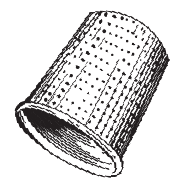I met Stalin’s granddaughter once, on an island off the coast of Sardinia. I was there looking for an almost-extinct species of cone shell—the Lapis lazuli. Such an exquisite name; such potent venom.
I first saw her from a distance, an old woman, dressed in white, looking out to sea. I took her for one of the local nonnas, perhaps mourning a long-ago drowned husband or son. She wasn’t there every day.
Mostly I kept to myself, retiring each night after an early dinner in the village tavern. I’d spend my evenings poring over the current charts and writing reports. One night, after a month of fruitless work, I decided to stay on at the bar. That night I heard the story of how a young woman had turned up on the island alone, fifteen years after the end of the war. By the simple expedient of paying ample cash in advance, she’d rented an abandoned fisherman’s shack. She did not hide who she was.
Money is money, said one of the old men raising a sardonic glass. Though no stranger could ever expect to be fully accepted in a Sardinian fishing village, somehow Stalin’s granddaughter seemed to have found a way to be there and not be there at the same time. She did them no harm. They did not wish her ill. Not even when, after ten years, she took up the habit of dressing all in white. Sardinians are touchy. This might have been seen as an insult to the traditional black garb of most of the women over forty. But the teller of the tale simply grinned, revealing his missing front teeth, and made the expressive gesture for macca. Crazy.
She didn’t strike me as crazy, the only time I talked to her. It was late one afternoon of my final week on the island. I’d carefully netted through all the tidal pools west of the village, finding nothing but disappointment. As usual I’d picked up all manner of plastic garbage from the beaches, which I would put in the large bin behind the tavern. No doubt the people thought me macca, too.
She was sitting on a rock, still warm from the afternoon’s sun. I clambered up and sat down—not too close. She spoke first, in clear English, with only the trace of an accent. She asked me about my bag, and I told her I’d come looking for a cone shell and found nothing but plastic. It’s the tides, I explained, and the temperature. Pollution. Everything is out of place.
To my surprise, she knew quite a bit about ecology. She had come to Sardinia, she told me, because there had never been wolves on the island. The shell I’m looking for is highly venomous, I said, but it’s not native here. Neither am I, she replied, turning to look at the sea. We were silent for a while.
As it grew darker, the cresting waves began to glow with phosphorescence. She looked down, speaking with an odd intensity, Creatures migrate all the time. We went back to looking at the countless sparks of greenish light. Maybe even souls, she added, more to herself than me.
I never saw her again. The last few days I was busy finishing up reports and writing a new grant proposal. I took the evening ferry back to the mainland. Watching the phosphorescence in its wake I thought of her. Perhaps I should have said I was researching cone shell toxin in search of better medicine for unbearable pain. I regret now that I didn’t.



I enjoyed the subtle hints to culture, people, extinction of species. Thank you, Liana.
Thank you for your sensitive reading.
Beautiful, Liana! 🌺
Thank you, Chris.
Beautiful! Glad to have made acquaintance.
Hauntingly beautiful Liana Joy Christensen I could feel the timeless quality and the lyrical flow of the cresting waves of times past. Thanks for sharing.
Thank you, Kyle. It’s magic when writing connects people.